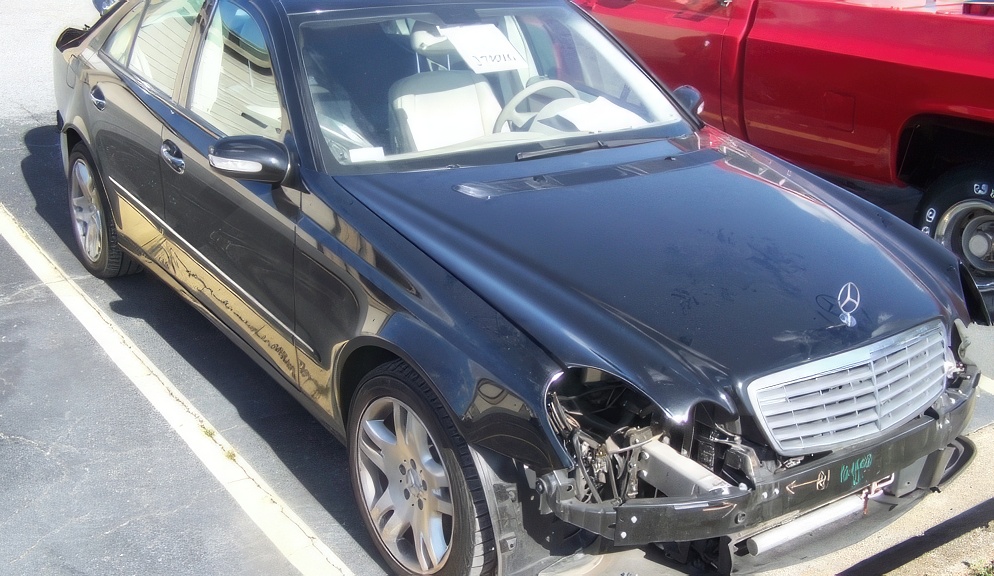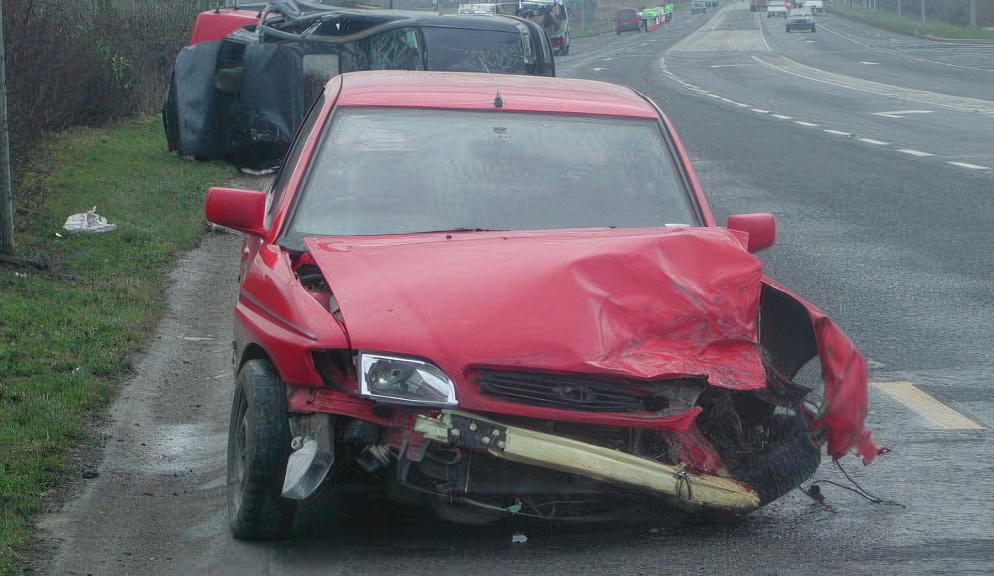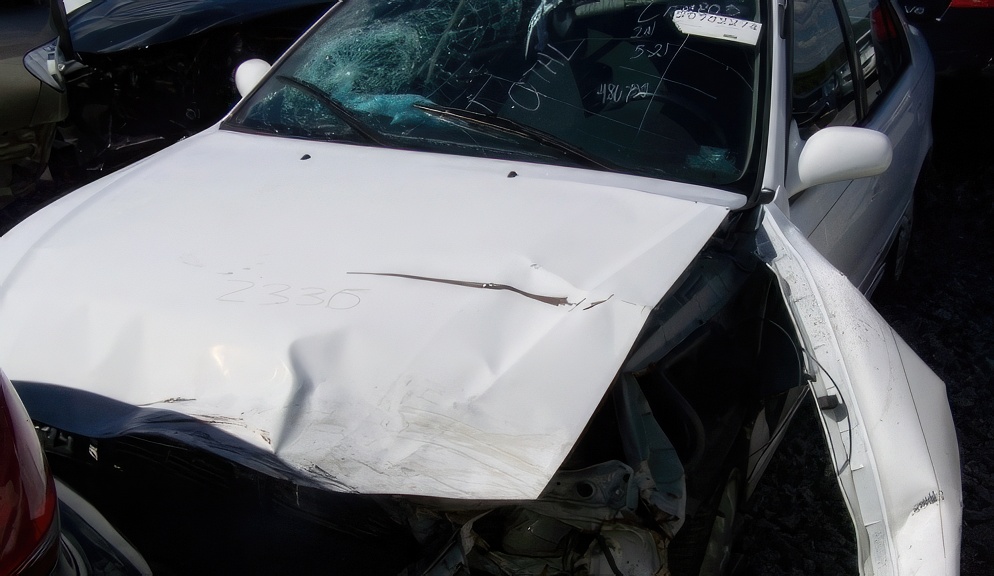Navigating Tax Deductions: Can You Write Off Diminished Value?

Navigating the complexities of tax deductions can be a challenging endeavor, especially when it involves nuanced aspects like the diminished value of a vehicle. For many car owners, understanding whether they can write off diminished value on taxes is not just a matter of curiosity, but a significant financial consideration. This article aims to provide a clear, informative guide on the subject, delving into the intricacies of tax deductions, the nature of diminished value, the legal aspects of diminished value, and the critical guidelines set by the IRS.
Whether you’re a car owner, a tax professional, or simply someone exploring the possibilities of tax write-offs, this piece offers valuable insights, blending expertise, experience, and trustworthiness to navigate this complex topic.
Understanding Diminished Value in the Tax Context
The concept of diminished value often comes up in the aftermath of a car accident. It refers to the loss in a vehicle’s market value resulting from its damage history, even after repairs. But when tax season rolls around, a common question arises: Can you write off diminished value on your taxes? This article delves into the complexities of tax deductions related to diminished value, offering clear insights to help you understand your tax options.
To begin, it’s essential to grasp what diminished value really means. In the insurance world, it’s the financial difference between a car’s pre-accident value and its value after repairs. However, the tax implications of this loss are less straightforward. The Internal Revenue Service (IRS) has specific rules about what kinds of losses can be deducted, and understanding these regulations is key to determining if you can claim a diminished value deduction.
Moreover, the concept of diminished value in the tax context opens up a discussion about the relationship between personal asset management and tax responsibilities. For many, a vehicle is not just a mode of transportation but an investment. The recognition of this loss on a tax return can be seen as an acknowledgment of the real economic impact that accidents have on personal assets. This understanding can be critical for individuals who rely on their vehicles for business purposes, as the diminished value might affect their professional assets and financial planning.
Tax Deduction Basics: What Qualifies?
Tax deductions reduce your taxable income, potentially lowering your tax bill. However, not every expense or loss qualifies for a deduction. The IRS sets strict guidelines on deductible losses, typically focusing on those that are considered “unusual and necessary.” This raises the question: Does diminished vehicle value due to an accident fit into this category?
Generally, personal property losses due to theft or casualty (which includes car accidents) can qualify for a tax deduction. However, there are caveats. To qualify, the loss must exceed 10% of your adjusted gross income (AGI) and $100 per loss event. But it’s important to note that these rules can change, and the specifics can vary based on tax law amendments and the taxpayer’s personal situation.
Delving deeper, understanding the nuances of tax deductions is essential for making educated financial decisions. For instance, the eligibility for deducting losses from a vehicle’s diminished value might change based on whether the car is used for personal or business purposes. In the case of business use, different rules might apply, potentially making it easier to claim the loss. This distinction emphasizes the importance of understanding the specific context of your loss and how it aligns with IRS guidelines.
Diminished Value and Casualty Loss Deductions
Casualty loss deductions are meant for sudden, unexpected, or unusual losses. Diminished value falls into a gray area in this context. The reduction in your car’s value post-accident might not be considered a casualty loss in the traditional sense, as the vehicle is still usable and has been repaired. This distinction is crucial in determining if you can claim this loss on your taxes.
It’s also important to consider that if you’ve received an insurance payout for the diminished value, you generally can’t also claim it as a tax deduction. The IRS aims to prevent a double benefit where you receive both an insurance payout and a tax deduction for the same loss. If your insurance doesn’t cover the entire loss, however, there might be room to claim the difference on your taxes.
Furthermore, the concept of diminished value challenges traditional views of what constitutes a ‘loss.’ Unlike clear-cut cases of total loss or theft, diminished value is a more subtle, yet tangible, decrease in an asset’s worth. This subtlety can make it challenging to navigate tax claims, as it requires a detailed understanding of both the tax code and the specifics of the vehicle’s value before and after the incident. This complexity underscores the need for meticulous record-keeping and possibly seeking legal or tax advice to properly address such claims.
Documentation and Professional Advice
When considering a tax deduction for diminished value, documentation is key. Keep all records of the accident, repairs, and any insurance claims or payouts. A professional appraisal of your car’s diminished value can also be crucial in substantiating your claim.
Given the complexities of tax laws, consulting a tax professional is highly recommended. An experienced tax advisor or CPA can provide personalized advice based on your specific circumstances. They can also help navigate the nuances of tax regulations to determine if your diminished value loss qualifies for a deduction.
Also, it’s worth noting that the burden of proof in claiming a tax deduction for diminished value lies heavily on the taxpayer. This means that you need to be prepared not just with documentation, but with a clear understanding of how these documents support your claim. This includes having a comprehensive appraisal that accurately reflects the car’s value pre- and post-accident, and an understanding of how this change in value intersects with tax laws. The more detailed and accurate your documentation, the stronger your case will be when dealing with the IRS.
Real-World Examples and IRS Precedents
To illustrate how these rules apply in real life, consider the following scenario:
A taxpayer’s car, worth $20,000, is involved in an accident. After repairs, its value drops to $15,000. The taxpayer received an insurance payout of $4,000, covering part of the loss. In this case, they might be able to claim the $1,000 difference on their taxes, but only if it exceeds 10% of their AGI and $100.
It’s worth looking at IRS precedents and rulings on similar cases. These examples can provide insight into how the IRS has handled diminished value claims in the past, which can be a useful guide in determining the likelihood of successfully claiming such a deduction.
In addition to specific scenarios, it’s beneficial to review historical tax cases and IRS decisions related to diminished value. Such precedents can often shine a light on how the IRS interprets these situations. While every case is unique, past rulings provide a framework and reference point. For example, understanding how the IRS has viewed the diminished value in cases where the vehicle is used partially or exclusively for business can provide valuable insights for taxpayers in similar situations.
Weighing Your Options
In summary, whether you can write off diminished value on your taxes depends on several factors, including IRS regulations, the specifics of your loss, and any insurance payouts you received. While there’s a potential to claim this type of loss, it’s not straightforward and requires careful consideration and documentation.
Remember, tax laws are complex and subject to change, so it’s always best to seek professional advice. By understanding the basics and consulting with a tax expert, you can make an informed decision about claiming a diminished value deduction and ensure compliance with tax regulations. Staying informed and proactive in managing your tax affairs is crucial, especially when dealing with specialized situations like diminished value claims.
Lastly, it’s important to remember that tax laws and interpretations can evolve. What may not qualify for a deduction today could change with new tax codes or legal precedents. Keeping abreast of these changes, possibly with the help of a tax professional, ensures that you don’t miss out on potential tax benefits. An annual review of your tax situation, especially after experiencing a loss in vehicle value, is advisable to ensure that you are making the most of your tax filing and adhering to current regulations.





